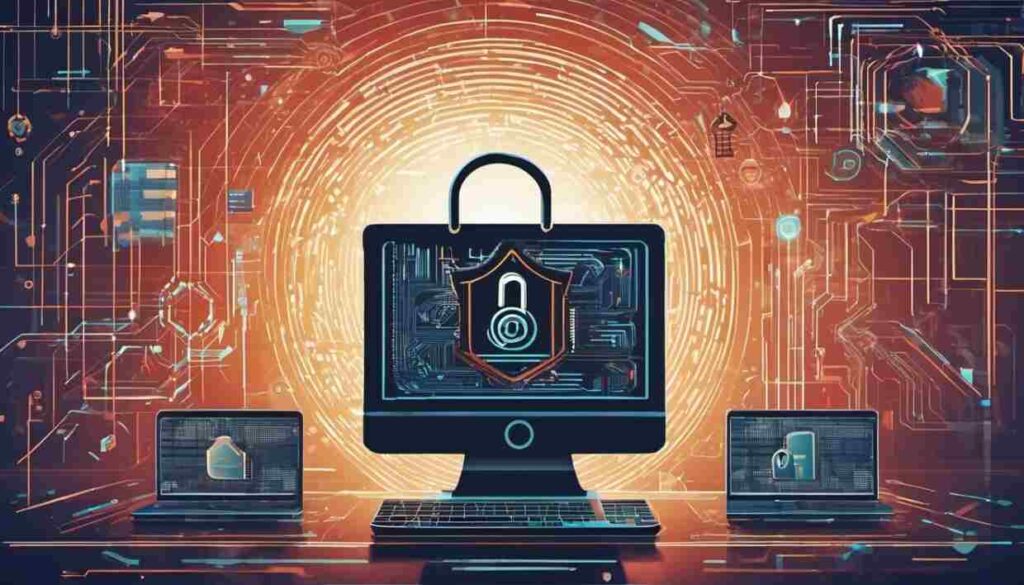Safeguarding your digital life has become essential given growing risks aiming at home PCs. Whether you are simply browsing the internet, online banking, or working from home, strong cyber security practices are absolutely vital. This all-inclusive guide will offer thorough plans and useful advice to improve the security of your home computer and guard your private data against online attacks.
What is Cybersecurity for Home Computers
What is cyber security?
Cyber security is the methods and tools meant to guard data from illegal access, cyber-attacks, and data breaches from computers, networks, and other devices. It covers several approaches to protect digital resources and guarantee privacy.
Why should home users give cyber security top priority?
Because home users have less security than business networks, fraudsters sometimes target them. By safeguarding your house computer, you can avoid data leaks, financial loss, and identity theft thereby guaranteeing a safer online environment.
Best Strategies to Safeguard Your Home Computer Cybersecurity Install Complete Security Programmes
Your first line of protection against cybercrime is security software. It covers antivirus, anti-malware, and firewall systems meant to identify and stop destructive behaviour.
Maintaining Your Operating System and Software Update
Frequent updates fix weaknesses and raise security standards. Turn on automatic updates to make sure your systems and programmes are continually safeguarded against the most recent dangers.
Choose Powerful and Original Passwords
One often used point of access for cybercrime is weak passwords. For every account, use difficult, distinctive passwords; think about a password manager to help you remember them.
Activate Two-Factor Authentication (2FA)
By mandating a second form of verification—such as a text message or authentication app—in addition to your password, two-factor authentication adds still another level of protection.
Use links and emails carefully
Common phishing scams can fool you into divulging personal information. Verify the sender’s identity always; avoid clicking on dubious attachments or links.
Safe Your Residential Network
Your digital life opens out from your Wi-Fi network. To improve security, choose a strong, distinctive password, turn on WPA3 encryption; and think about masking your network SSID.
Backup Your Data Frequently
Regular backups guard your data from hardware failures or cyber-attacks-related loss. To guarantee data redundancy, backup both physically and virtually.
Employ a VPN, or virtual private network
A VPN locks your internet connection, therefore shielding your online behaviour from view. When using public Wi-Fi networks especially, it is quite helpful.
Limit Personal Information Exchange
Think about the personal data you publish online. Cybercriminals launch deliberate attacks using specifics from social media and other sources.
Learn for Your Family and Yourself
Cybersecurity depends critically on awareness. To lower your family’s and your own risk of cyber-attacks, educate them about possible hazards and safe online behaviour.
Advanced Home Computer Cybersecurity Strategies
Make Use of encrypted communications
Encryption guarantees safe transmission of your data and communications. Guard private data via chat applications and encrypted email services.
Apply User Privileges and Security Policies
Establish security rules on your home network and limit user rights to stop illegal access. Make sure every family member applies these guidelines and understands them.
Frequent Security Reviews
Frequent security audits help you to find and fix system weaknesses. Use tools and services designed to search your devices and network for any dangers.
Safe IoT Objects
Entry points for cyber-attacks can be Internet of Things (IoT) devices. Change default passwords; maintain firmware current; separate IoT devices on a different network.
FAQ’s
My security software should be updated how often?
Update your security programme often to guarantee defence against the most recent vulnerabilities. Most software companies give automatic updates; turn on this function for flawless security.
Can I rely just on protection from antivirus software?
Although antiviral software is absolutely necessary, depending just on it is insufficient. Apply multi-layered security using firewalls, frequent upgrades, strong passwords, and user education.
Should I suspect my computer is infected, what should I do?
Disconnect from the internet, do a full system scan with your security software, and eliminate any found risks if you believe your machine is affected. If necessary, give expert assistance some thought.
Using public Wi-Fi seems safe.
Cybercriminals can profit from less secure public Wi-Fi networks. Use a VPN to secure your connection and stay away from browsing over public networks important data.
Should I find myself victimised by a ransomware assault, how can I retrieve my data?
Should you be victim of a ransomware attack, do not pay the ransom. Restore your data from backups, notify authorities of the incident; and see a cyber security expert for more help.
Why do two-factor authentication matter?
Requiring a second verification process, two-factor authentication offers still another degree of protection. It greatly lowers the possibility of illegal access even in cases of compromised password.
Final Thoughts
Keeping your home computer safe from cyberattacks calls both constant awareness and a proactive strategy. Using the techniques described in this book can help you improve your cyber security, safeguard your private data, and enjoy a safer online experience. Keep informed, keep safe, and seize control of your digital life.
For more Informative articles you can visit our blog royalsprinter.com

